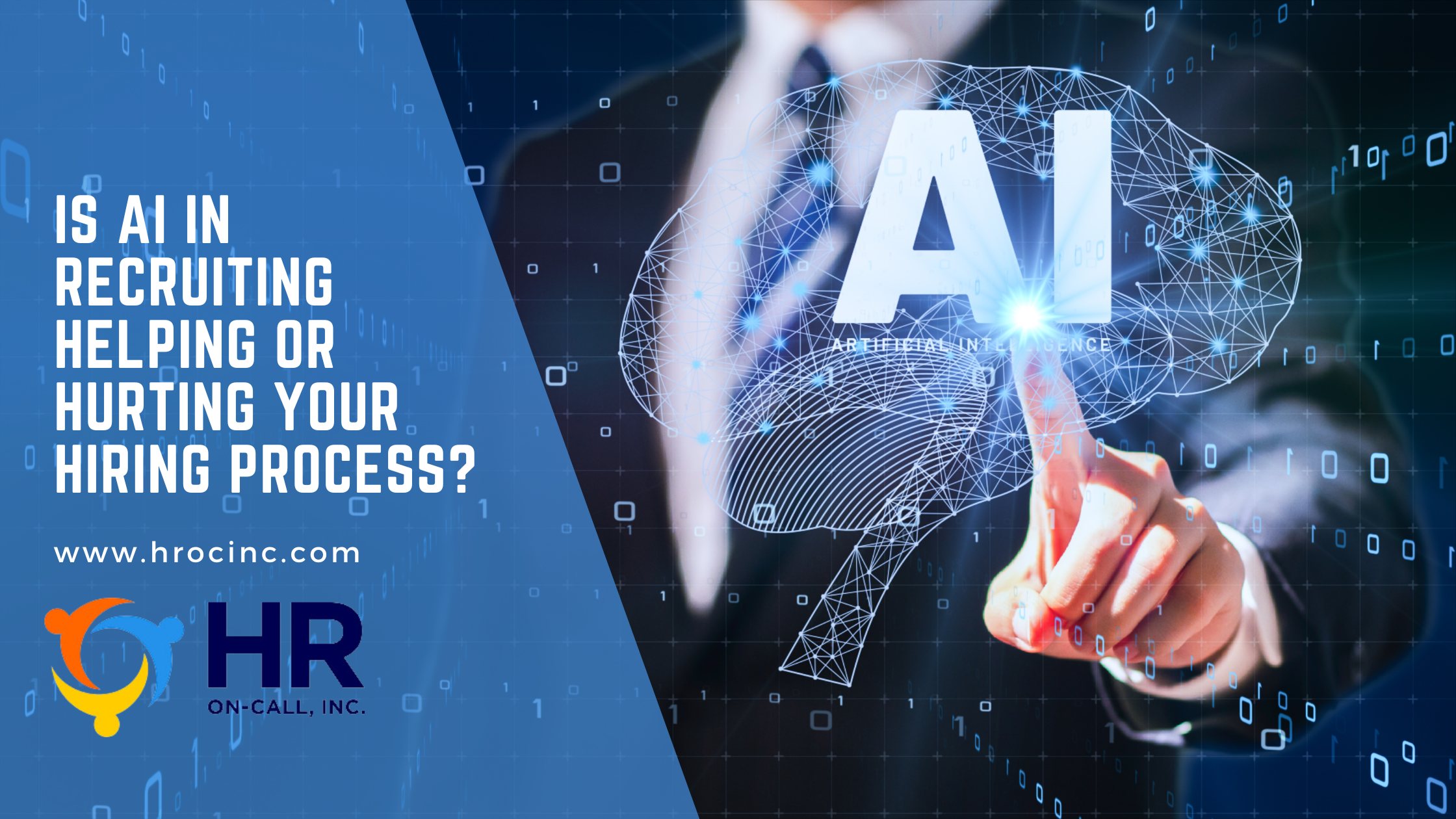What Small Teams Need to Know in 2025
AI is everywhere—from chatbots and resume screeners to automated interviews and candidate matching. In recruiting, artificial intelligence promises faster hiring, better candidates, and fewer manual tasks.
But as with any tool, AI is only as good as the strategy behind it.
So the big question for small HR teams and business owners is: Is AI actually helping your hiring process—or could it be quietly hurting it?
Let’s break it down.
🤖 How AI Helps the Hiring Process
There’s no denying that AI can make life easier for lean teams. When used well, it saves time, reduces bias, and improves decision-making. Here’s how:
✅ 1. Faster Resume Screening
AI tools can quickly sift through hundreds of resumes and identify top candidates based on keywords, skills, and job history—cutting screening time from hours to minutes.
✅ 2. Candidate Matching
Some platforms use machine learning to match job descriptions with the most relevant applicants, even before a recruiter looks at them.
✅ 3. Interview Scheduling
AI chatbots and tools like Calendly or Paradox Olivia can coordinate interviews, send reminders, and reduce no-shows.
✅ 4. Predictive Analytics
AI can help predict which candidates are more likely to accept an offer, stay long-term, or fit your company culture—based on data patterns.
✅ 5. Improved Candidate Experience
Automated responses and status updates keep candidates informed and reduce the infamous “black hole” feeling.
🚨 Where AI Can Hurt Your Hiring
As powerful as AI is, it’s not perfect—and if left unchecked, it can actually harm your hiring process.
❌ 1. Hidden Bias in Algorithms
AI systems are trained on historical data. If that data includes bias (and most does), the AI may unintentionally reinforce it—excluding qualified candidates based on name, school, or gaps in employment.
❌ 2. Over-Reliance on Keywords
AI often filters resumes by keyword matching, which means great candidates may get passed over if their resume isn’t formatted just right or doesn’t use the exact terms the AI is looking for.
❌ 3. Impersonal Communication
Candidates can tell when they’re being “bot-handled.” Overuse of AI in communication can feel cold or robotic, especially in the early stages.
❌ 4. Lack of Transparency
If you can’t explain why a candidate was rejected (because “the algorithm said so”), it can lead to frustration, legal risk, and damage to your employer brand.
🧠 The Human + AI Sweet Spot
AI is a tool, not a replacement for human judgment.
The best hiring strategies in 2025 are built around a hybrid approach: using AI to handle repetitive tasks and speed up processes, while keeping humans in charge of relationships, interviews, and final decisions.
🔄 Use AI for:
- Resume parsing
- Scheduling
- Candidate screening
- Data insights
🧍 Keep humans involved in:
- Interviewing
- Culture fit evaluation
- Final decision-making
- Personal communication
✔️ Questions to Ask Before Using AI in Your Hiring
- Does the AI tool promote fairness and transparency?
- Can I audit or review the decisions it makes?
- Am I using it to supplement—not replace—human interaction?
- Is my team trained to understand and oversee AI tools?
🚀 Final Thoughts
AI can absolutely improve your hiring process—but only when used with intention and oversight.
If you’re a small team looking to hire smarter and faster, AI can be a game-changer. Just make sure you don’t lose the human touch that makes great hiring truly great. Candidates still want to feel seen, heard, and valued—and no algorithm can replace that.

